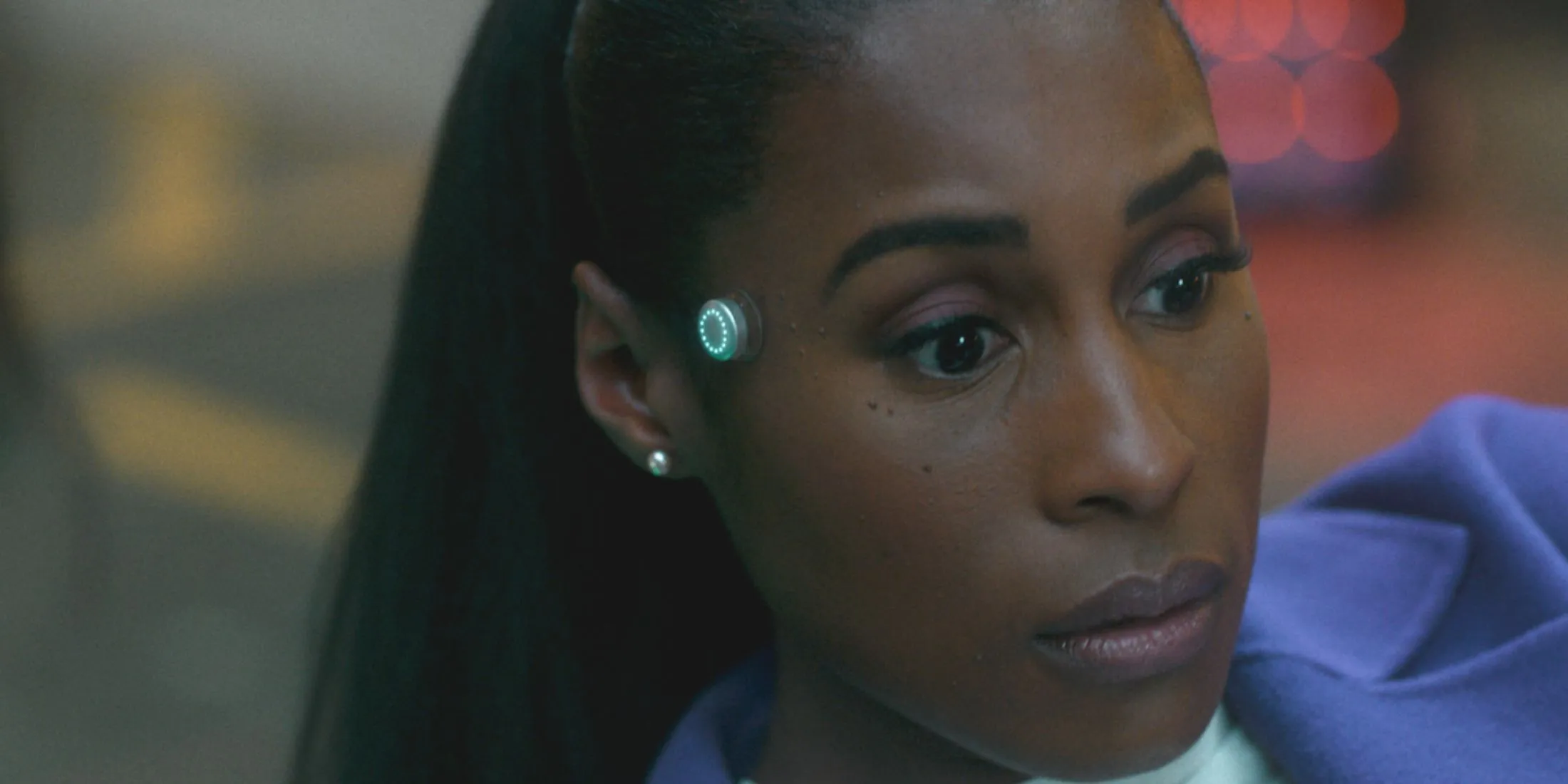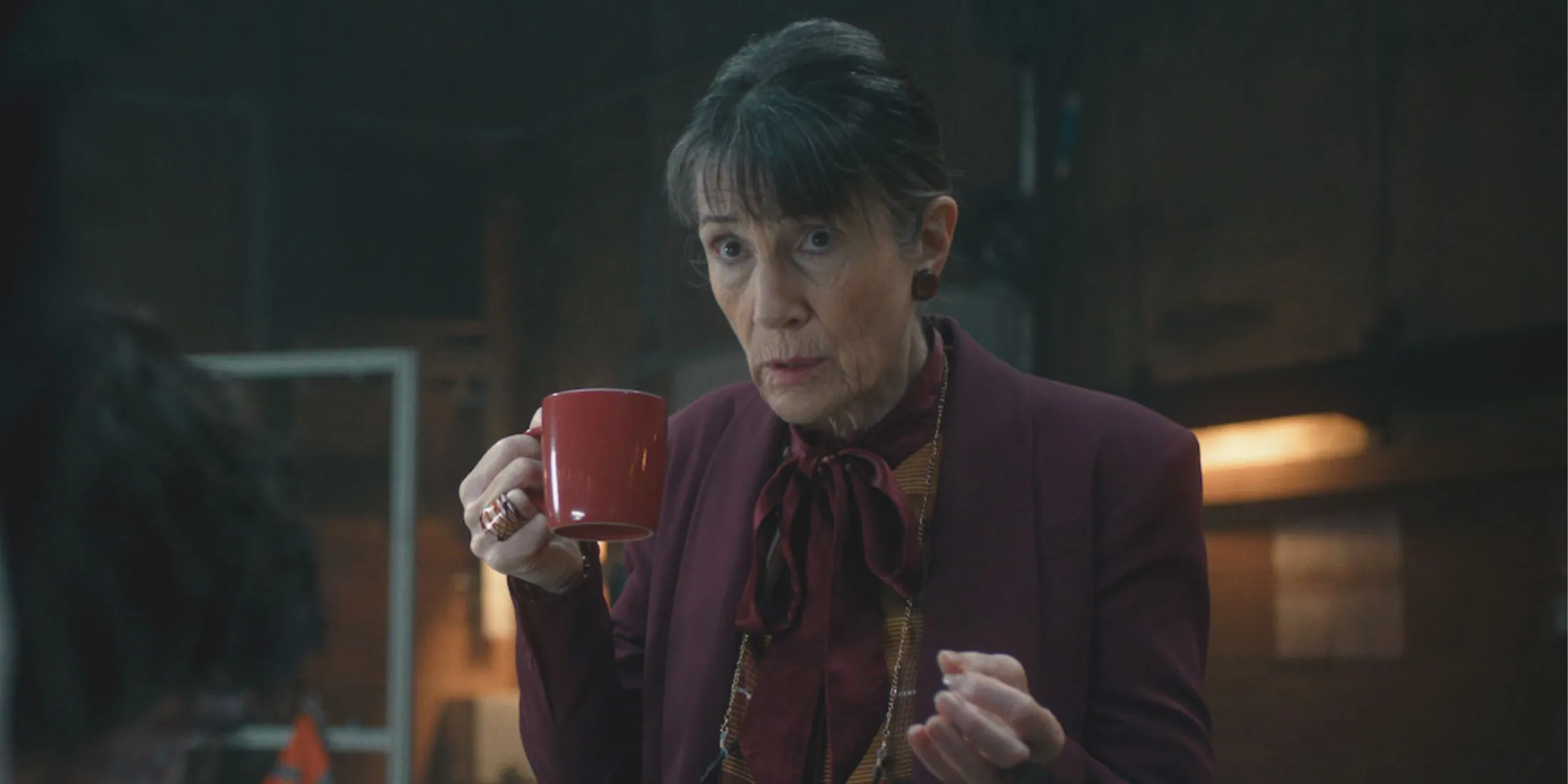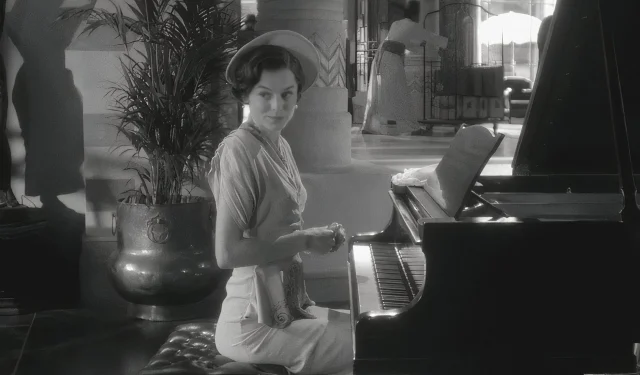Overview
- “Hotel Reverie”from Black Mirror Season 7 presents a haunting investigation into the implications of AI in storytelling.
- This episode explores AI’s capacity to surpass human comprehension of behavior and the consequences of this development.
- The narrative interlaces elements of horror and psychological drama as characters grapple with their loss of autonomy in an AI-dominated film setting.
In Season 7 of Black Mirror, the opening episodes differ notably in their focus. “Common People”critiques the impact of major tech firms on well-being, emphasizing subscription tiers for optimal health. In contrast, “Bete Noire”examines how individuals can leverage advancing technology to disrupt others’ lives. However, Episode 3 diverges significantly, probing an essential question: Are humans at the helm of technology, or is the reverse true?
Titled “Hotel Reverie,”Episode 3 introduces an innovative software designed to assist filmmakers in recreating classic films in real time. A once-prestigious production company, now struggling with debt, seizes the opportunity to remake one of its renowned black-and-white films. They hire a new lead actress, maintaining the original script, and set out with high hopes. However, as is often the case in the Black Mirror universe, unforeseen challenges arise, leading to potentially fatal consequences for those involved.
Black Mirror Season 7’s Hotel Reverie: A Haunting Exploration of Hollywood’s Legacy
Examining the Dangers of AI-Enhanced Narratives

This episode deftly traverses timelines to unravel a captivating yet intricate storyline. “Hotel Reverie”derives its name from a fictional film released during the black-and-white era, showcased by two monumental stars of that time, cementing its status as a classic. Yet, the studio behind this masterpiece is now struggling financially and on the verge of collapse.
Judith Keyworth (Harriet Walter), the studio’s head, doubts their ability to secure top-tier talent due to financial constraints. However, Kimmy (Awkwafina), the brains behind the ReDream software, promises Judith the ability to cast any star in the industry. Fast forward to present day, and Brandy (Issa Rae), a prominent Hollywood actress, eagerly accepts the lead role in the “Hotel Reverie”remake, traveling to England for production. This isn’t your typical filming experience; ReDream enables Brandy to be fully immersed in the film’s world, engaging with Dorothy Chambers (Emma Corrin), who originally portrayed Clara. What begins as a standard shoot quickly devolves into chaos.
The premise is deceptively simple, but a twist elevates the narrative’s intensity. Brandy finds herself not merely acting but living in an immersive environment where every action and line is documented in real-time. Unfortunately, when she becomes trapped within this surreal plane, “Hotel Reverie”transforms into a slow-building psychological thriller that tightens its grip with each unfolding scene.
Exploring Themes of Identity and Control in Hotel Reverie

A standout element of the episode lies in its portrayal of AI’s adaptability. The film set environment evolves not just based on predefined input but through interactive responses to dialogue and actions. If Brandy deviates from the script, the AI recalibrates, creating unanticipated scenarios. This reflection of contemporary discussions about technology’s dynamic nature highlights an unsettling reality: AI could potentially understand human behavior more profoundly than any individual. What would occur in a world where control is ambiguous, transforming technological tools into potential snares?
Throughout “Hotel Reverie,”we discover that Dorothy merges with her Clara character, finding resonance in her own life. When Brandy mistakenly refers to her by her real name, it catalyzes a significant change in the narrative. This moment underscores the unsettling notion that as technology becomes increasingly attuned to human emotions, it may inadvertently steer lives in unforeseen directions.
Issa Rae’s portrayal of Brandy is commendable, as she skillfully conveys an emotional spectrum from confidence to fear. Viewers tangibly feel her anxiety as the scenic hotel morphs into a labyrinthine nightmare. While Awkwafina and Walter deliver commendable performances, Emma Corrin shines brightly, perfectly encapsulating Dorothy’s vulnerabilities and haunting fears. Her seamless embodiment of a character trapped in a surreal existence draws audiences into her plight, blurring the line between performance and reality.
While Black Mirror critiques technology’s role in society, it also illuminates the human experiences intertwined within. “Hotel Reverie”serves as a satirical lens on the entertainment industry, probing themes of identity, autonomy, and the extent to which technology can augment or undermine realism. Dorothy’s character embodies a sense of captivity, expressing emotions for a being external to her reality, amplifying the narrative’s psychological depth.
This episode further elucidates humanity’s underrated grasp of emerging technologies. While we may assume we can exert control, the continuous flow of data only enhances technology’s complexity, enabling capabilities beyond our imagination. Complementing the narrative, the cinematography is a visual triumph, seamlessly marrying vintage aesthetics with contemporary techniques, yielding a hauntingly beautiful experience.
The brisk pacing, incisive dialogue, and unsettlingly relevant themes ensures that “Hotel Reverie”does more than entertain; it compels viewers to reflect on the media they engage with and the underlying structures that shape their perceptions.


